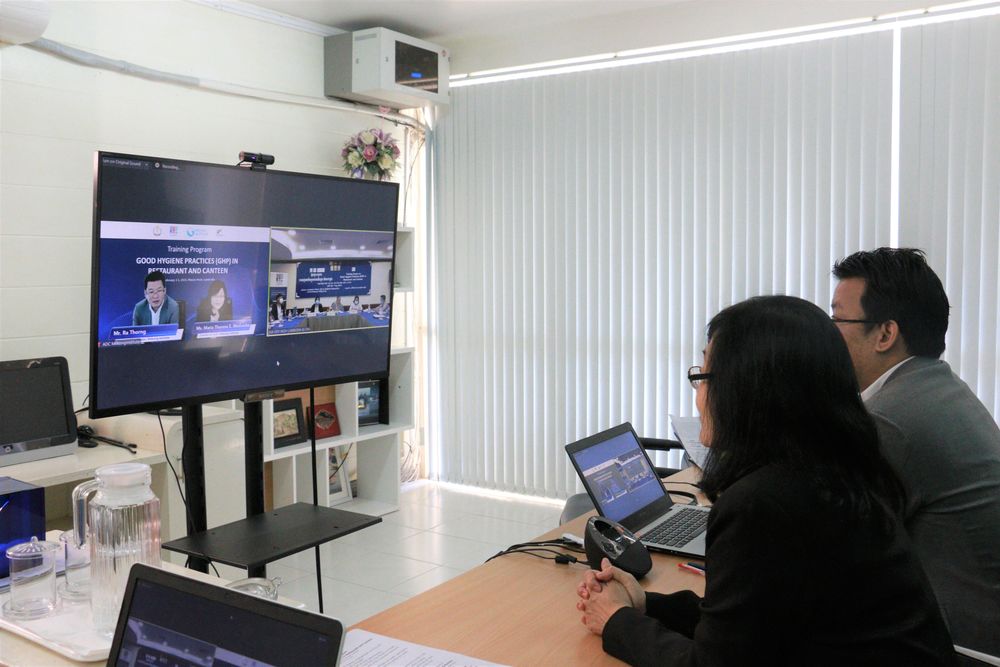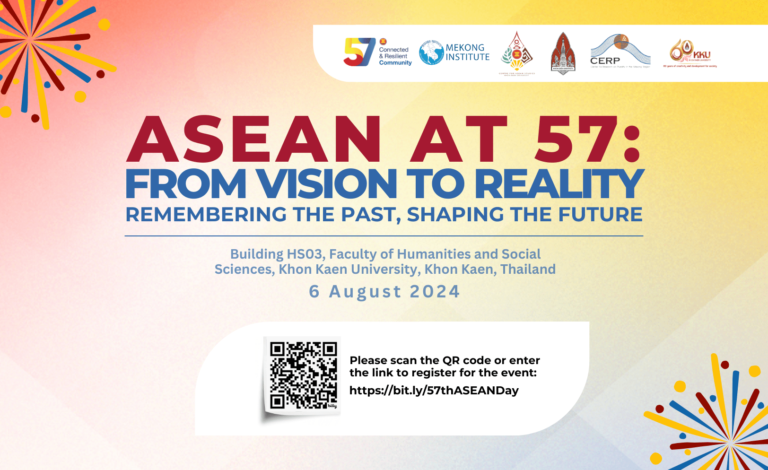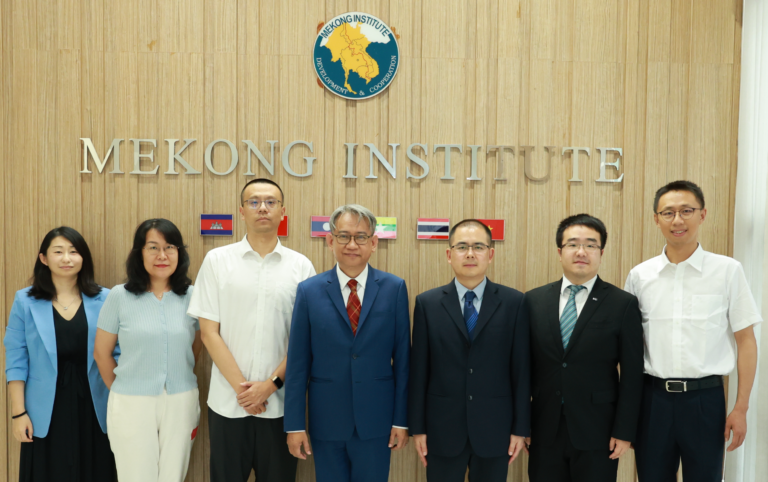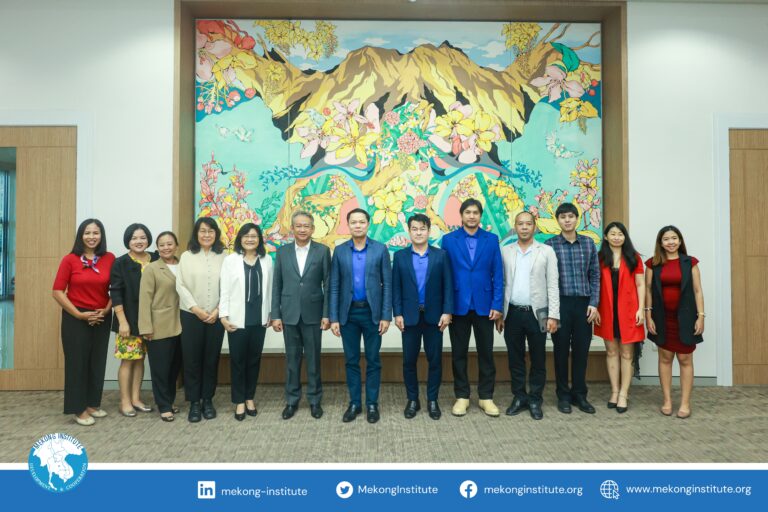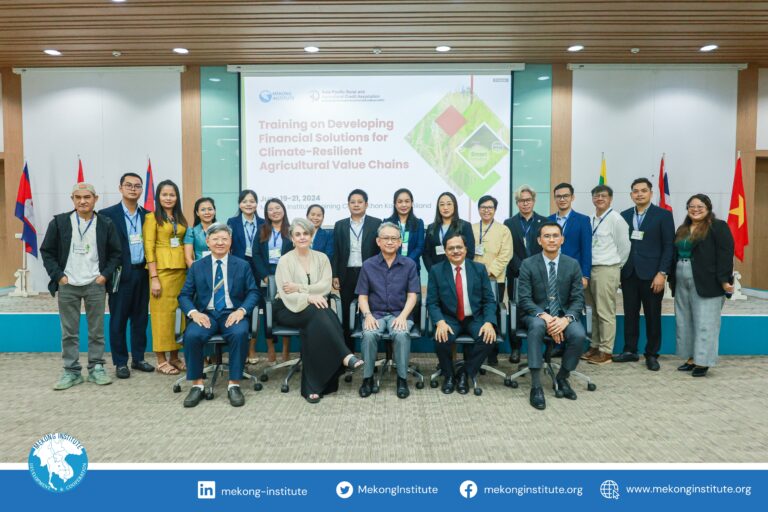Mekong Institute (MI) continues to lay the groundwork in building a food safety culture as it rolled out its fifth PROSAFE training program on “Good Hygiene Practices (GHP) in Restaurant and Canteen” to help more food businesses secure a GHP logo and hygiene certificates for deeper consumer trust on products and services.
Targeted towards 20 Cambodian food service operators from restaurant and catering businesses, MI’s sessions from February 3 to 5, 2021 will introduce the basic principles of food safety, hygiene and sanitation, as well as present food safety hazards and control systems.
“It is important for us to widen partnerships, so we can collectively strengthen regulatory systems and provide more training and education programs to protect public health and contribute to the return of tourism in Cambodia against a COVID-19 landscape,” Ms. Maria Theresa S. Medialdia, MI Director of Agricultural Development and Commercialization, said during the opening session.
Ms. Medialdia acknowledged the strong support of Cambodia’s Ministry of Health (MOH) in establishing food safety in the country. She explained that MI and the Food Safety Bureau of the Department of Drug and Food (DDF) have been delivering targeted capacity building support in the last three years to effect behavioral change among the agri-food industry for the reduction of food hazards and risks among Cambodia’s populace.
Dr. Heng Bunkiet, Director of DDF from Cambodia’s MOH, emphasized that the training was also an opportunity for participants to learn from a range of experts on ways forward to secure sustainable profits from their food businesses.
“When there is ownership of the quality of services and products, business operators can maintain customer loyalty and be competitive in the food market,” he stated.
During the three-day program, MI training participants will be exposed to up-to-date approaches and guidance on the conformance and compliance with food safety and hygiene requirements. Specifically, food safety experts will present relevant legislation, as well as standards on food storage, food preparation, pest control, personal hygiene, and cleaning and sanitation of food premises.
“This partnership between government, MI, and our association is a strong testament of our shared commitment to elevate our food industry,” Ms. Horn Raskmey, Manager of the Cambodia Restaurant Association, said. She added that during the pandemic when food businesses are in a downturn, trainings such as the ones provided by MOH and MI are tools for business owners to strengthen their resiliency and food safety acumen.
Supported by the New Zealand Aid Programme, the three-day training is the first PROSAFE activity in 2021. As an in-country program, MI facilitators will be supervising via digital channels, while local experts will provide onsite lectures and discussions, as well as a field visit in restaurants to highlight best food safety management system practices.
Formed in 2018, PROSAFE focuses on strengthening food safety and quality control systems in the agri-food sector amid the current global health crisis. It also promotes a more inclusive public-private network to further sustain a safe food culture in Cambodia, Lao PDR, Myanmar, and Vietnam.


